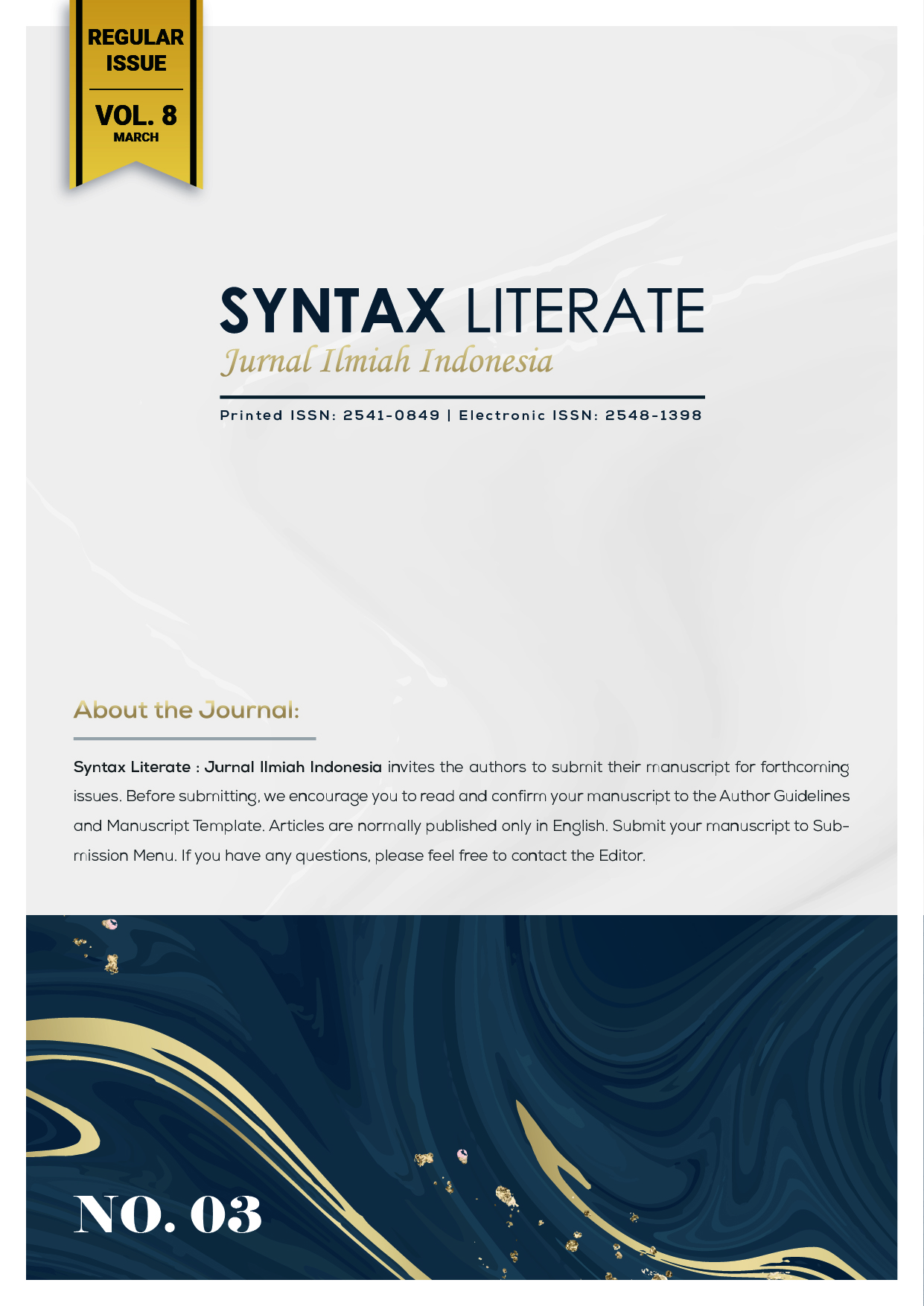Pengaruh Korean Brand Ambassador Credibility Terhadap Impulse Buying Pada Produk E-Commerce di Indonesia
Abstract
Penelitian ini bertujuan untuk mengetahui pengaruh dari Korean brand ambassador credibility terhadap impulse buying pada e-commerce di Indonesia. Sampel penelitian berjumlah 248 responden dengan kriteria yaitu berdomisili di Jabodetabek, pengguna platform e-commerce, dan melakukan minimal tiga kali pembelanjaan secara impulsif yang disebabkan oleh adanya brand ambassador. Pengumpulan data menggunakan kuesioner yang disebar secara online, responden akan menjawab kuesioner dengan memilih jawaban menggunakan skala likert dari angka 1 sampai angka 5. Metode yang digunakan adalah PLS-SEM menggunakan SmartPLS 3.0. Hasil penelitian menunjukkan bahwa brand ambassador credibility memiliki pengaruh terhadap fear of missing out dan juga terhadap impulse buying. Fear of missing out memiliki pengaruh terhadap impulse buying. Sementara untuk scarcity memiliki efek moderasi terhadap hubungan brand ambassador credibility dengan fear of missing out, namun scarcity memiliki efek yang dapat memperlemah pengaruh brand ambassador credibility terhadap impulse buying.
Downloads
References
Akram, U., Hui, P., Khan, M. K., Yan, C., & Akram, Z. (2018). Factors affecting online impulse buying: evidence from Chinese social commerce environment. Sustainability, 10(2), 352. https://doi.org/10.3390/su10020352
Alt, D. (2015). College students’ academic motivation, media engagement and fear of missing out. Computers in Human Behavior, 49, 111–119. https://doi.org/10.1016/j.chb.2015.02.057
Amos, C., Holmes, G. R., & Keneson, W. C. (2014). A meta-analysis of consumer impulse buying. Journal of Retailing and Consumer Services, 21(2), 86–97. https://doi.org/10.1016/j.jretconser.2013.11.004
Beatty, S. E., & Ferrell, M. E. (1998). Impulse buying: Modeling its precursors. Journal of Retailing, 74(2), 169–191. https://doi.org/10.1016/S0022-4359(99)80092-X
Borkowski, N., & Meese, K. A. (2020). Organizational behavior in health care. Jones & Bartlett Learning.
Cha, J.-M., Rhee, E.-Y., & Kim, M.-Y. (2001). Planned and unplanned apparel purchase typology and related variables. í•œêµì˜ë¥˜í•™íšŒ í•™ìˆ ë°œí‘œë…¼ë¬¸ì§‘, 272.
Crabbe, M. (2020). Research your way out of a crisis: COVID-19’s effect on consumer behavior. Marketing Research]. Mintel. Https://Www. Mintel. Com/Blog/Consumer-Marketnews/Research-Your-Way-out-of-a-Crisis-Covid-19 s-Effect-on-Consumer-Behaviour.
Fitriahningsih, A. S. C. (2020). Pengaruh Brand Ambassador Terhadap Minat Beli Dengan Citra Merek Sebagai Variabel Intervening (Studi Kasus Pada Pengguna Aplikasi Shopee Di Kota Makassar). Universitas Hasanuddin.
Gupta, S., & Gentry, J. W. (2019). ‘Should I Buy, Hoard, or Hide?’-Consumers’ responses to perceived scarcity. The International Review of Retail, Distribution and Consumer Research, 29(2), 178–197. https://doi.org/10.1080/09593969.2018.1562955
Hair, J. F., Ringle, C. M., & Sarstedt, M. (2011). PLS-SEM: Indeed a silver bullet. Journal of Marketing Theory and Practice, 19(2), 139–152. https://doi.org/10.2753/MTP1069-6679190202
Halim, T. M., & Kiatkawsin, K. (2021). Beauty and celebrity: Korean entertainment and its impacts on female indonesian viewers’ consumption intentions. Sustainability, 13(3), 1405.
Hayran, C., & Anik, L. (2021). Well-being and fear of missing out (FOMO) on digital content in the time of COVID-19: A correlational analysis among university students. International Journal of Environmental Research and Public Health, 18(4), 1974. https://doi.org/10.3390/ijerph18041974
Hodkinson, C. (2019). ‘Fear of Missing Out’(FOMO) marketing appeals: A conceptual model. Journal of Marketing Communications, 25(1), 65–88. https://doi.org/10.1080/13527266.2016.1234504
Immanuel, D. M., & Maharia, M. A. (2020). Engaging Purchase Decision of Customers in Marketplace Channel: A Study of Fashion Online Retail.
Jang, W. E., Ko, Y. J., Morris, J. D., & Chang, Y. (2015). Scarcity message effects on consumption behavior: Limited edition product considerations. Psychology & Marketing, 32(10), 989–1001. https://doi.org/10.1002/mar.20836
Lynn, M. (1989). Scarcity effects on desirability: Mediated by assumed expensiveness? Journal of Economic Psychology, 10(2), 257–274. https://doi.org//10.1016/0167-4870(89)90023-8
Lynn, M. (1992). Scarcity’s enhancement of desirability: The role of naive economic theories. Basic and Applied Social Psychology, 13(1), 67–78. https://doi.org//10.1016/0167-4870(89)90023-8
Nobbs, K., Foong, K. M., & Baker, J. (2015). An exploration of fashion visual merchandising and its role as a brand positioning device. Journal of Global Fashion Marketing, 6(1), 4–19.
Ohanian, R. (1990). Communication and validation of a scale to measure celebrity endorser’s perceived attractiveness and design to influence. J Advert, 19, 39–52.
Ozen, H., & Engizek, N. (2014). Shopping online without thinking: being emotional or rational? Asia Pacific Journal of Marketing and Logistics, 26(1), 78–93. https://doi.org/10.1108/APJML-06-2013-0066
Przybylski, A. K., Murayama, K., DeHaan, C. R., & Gladwell, V. (2013). Motivational, emotional, and behavioral correlates of fear of missing out. Computers in Human Behavior, 29(4), 1841–1848. https://doi.org/10.1016/j.chb.2013.02.014
Riordan, B. C., Flett, J. A. M., Hunter, J. A., Scarf, D., & Conner, T. S. (2015). Fear of missing out (FoMO): The relationship between FoMO, alcohol use, and alcohol-related consequences in college students. Annals of Neuroscience and Psychology, 2(7), 1–7.
Sanâ€Martin, S., & Lópezâ€Catalán, B. (2013). How can a mobile vendor get satisfied customers? Industrial Management & Data Systems. https://doi.org/10.1108/02635571311303514
Sarajwati, M. K. (2020). Fenomena korean wave di Indonesia. Retrieved from EGSA UGM: Https://Egsa. Geo. Ugm. Ac. Id/2020/09/30/Fenomena-Korean-Wave-Di-Indonesia.
Setiaji, B., & Pramudho, P. A. K. (2022). Pemanfaatan Teknologi Informasi Berbasis Data Dan Jurnal Untuk Rekomendasi Kebijakan Bidang Kesehatan. HEALTHY: Jurnal Inovasi Riset Ilmu Kesehatan, 1(3), 166–175. https://doi.org/10.51878/healthy.v1i3.1649
Shah, A. K., Shafir, E., & Mullainathan, S. (2015). Scarcity frames value. Psychological Science, 26(4), 402–412. https://doi.org/10.1177/0956797614563958
Sianipar, N. A., & Kaloeti, D. V. S. (2019). Hubungan antara regulasi diri dengan fear of missing out (Fomo) pada mahasiswa tahun pertama Fakultas Psikologi Universitas Diponegoro. Jurnal Empati, 8(1), 136–143.
Tian, Y., & Yoo, J. H. (2015). Connecting with the biggest loser: An extended model of parasocial interaction and identification in health-related reality TV shows. Health Communication, 30(1), 1–7. https://doi.org/10.1080/10410236.2013.836733
Copyright (c) 2023 Arinka Retna Wirasti, Ni Putu Pradipta Sari Puspita, Willy Gunadi

This work is licensed under a Creative Commons Attribution-ShareAlike 4.0 International License.











